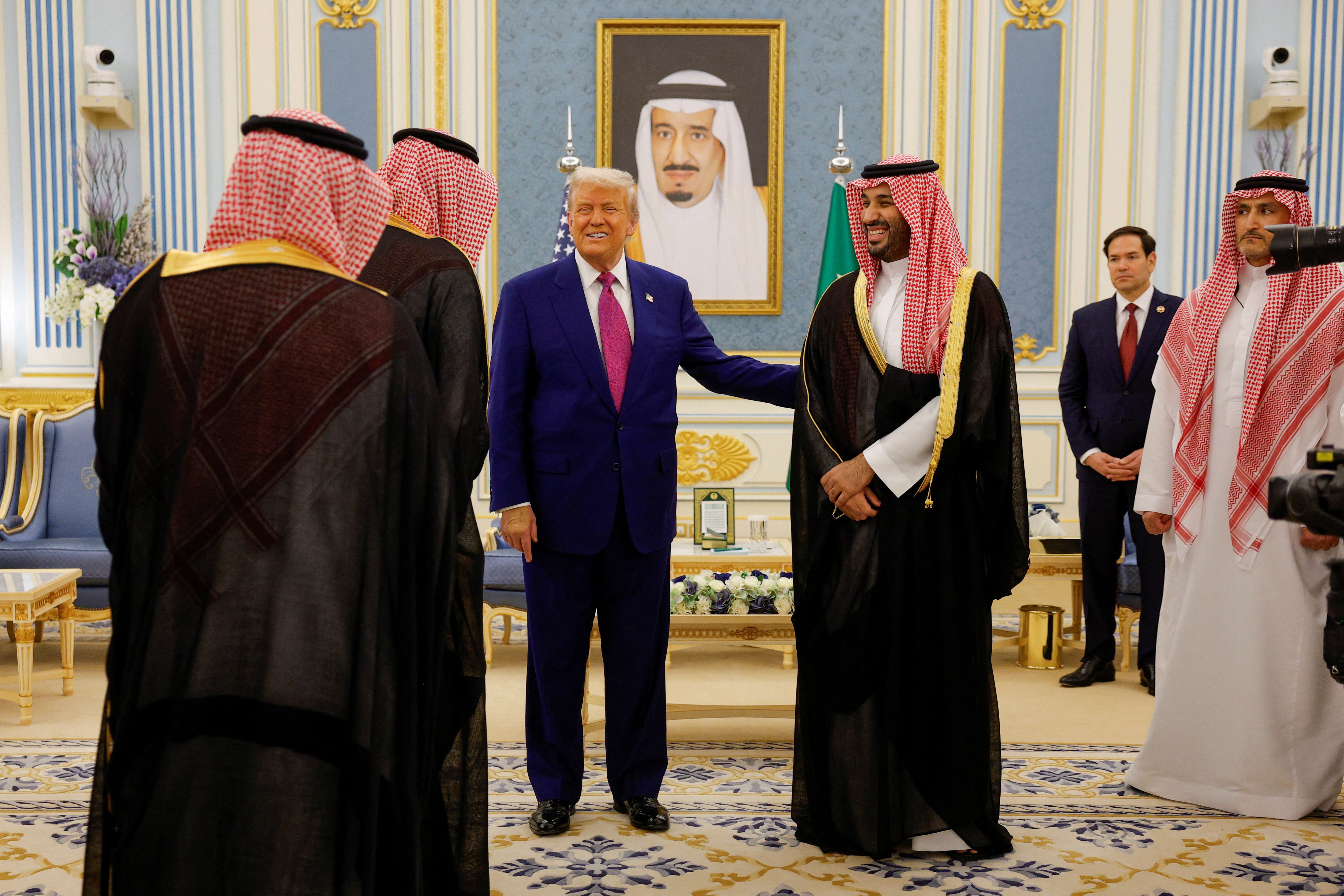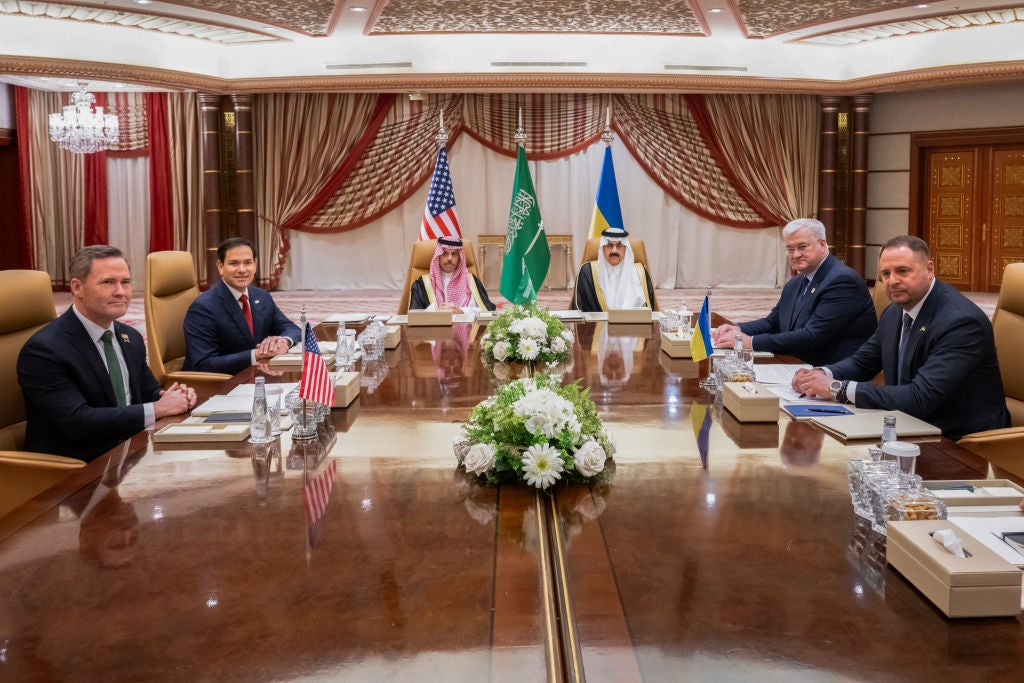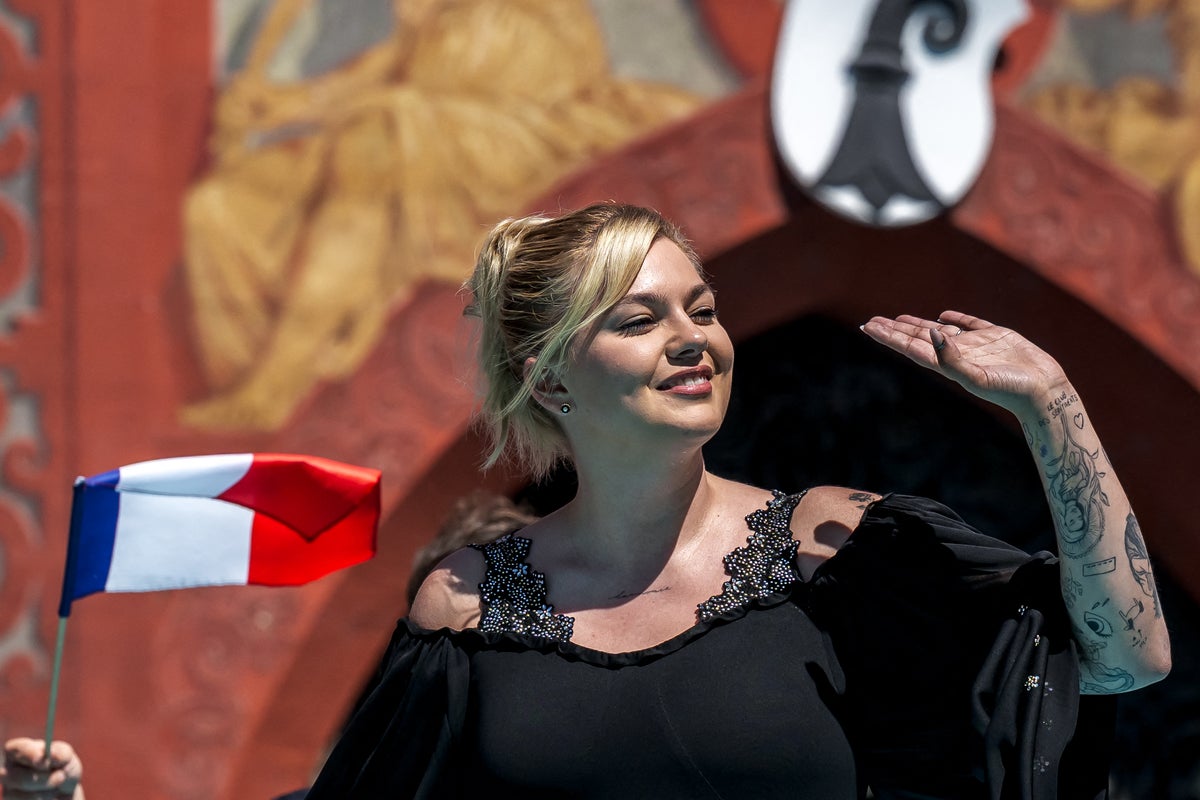ARTICLE AD BOX
Ukraine and Russia are set to meet in Turkey for peace talks three years after initial talks in the country broke down, with US president Donald Trump suggesting he could fly in to join the negotiations.
Ukrainian president Volodymyr Zelensky has also announced that he will be in Istanbul for the talks, due to start on Thursday, and has called for Russian leader Vladimir Putin to meet him there.
Russia has rejected Ukraine’s repeated calls for an unconditional 30-day ceasefire, insisting that its maximalist demands, which include the effective ending of Ukraine’s sovereignty, have not been addressed. But the Kremlin did announce at the start of this week that it would attend the talks in Turkey.
The return of Mr Trump to the White House has forced the two sides to the negotiating table, after more than three years of war and around a million people killed or wounded, but their differences appear still to be irreconcilable.
Who will be attending?

The person who has been most vocal about his attendance is Ukrainian president Volodymyr Zelensky. He wrote on social media earlier this week that he supports Mr Trump’s calls for direct talks with Mr Putin.
“I have openly said that I am ready for a meeting. I will be in Turkey. I hope that the Russians will not avoid this meeting,” he wrote on X.
He added that he hoped Mr Trump would “be there with us - at the meeting in Turkey”. “This is the right idea,” he added. “We can change a lot.”
His comments came after Mr Trump said he saw the “potential for a good meeting” between Mr Putin and Mr Zelensky. The pair have not met since 2019, when they both attended a Normandy Format summit in Paris, a few months after Mr Zelensky won the presidency.
The US president, speaking ahead of a trip to Saudi Arabia, the United Arab Emirates and Qatar, which began on Tuesday, said that he was “thinking about flying over” to the talks during his Gulf trip.
Whether Mr Putin attends remains unclear, though it is unlikely. When pressed on possible attendees, Kremlin spokesman Dmitry Peskov refused to say who might travel to Istanbul from the Russian side.
“Overall, we're determined to seriously look for ways to achieve a long-term peaceful settlement. That is all,” Mr Peskov said.
The meeting comes after Mr Putin claimed he was serious about a peace deal in a surprise speech on the weekend.
But Mr Zelensky’s chief aides have suggested that the president will not sit down with lower-level Russian officials if Mr Putin does not show up. Kyiv insists that Mr Putin is the only decision maker in Moscow.
Ukraine and Russia have both held separate talks with the Trump administration in Saudi Arabia this year, though the meetings failed to achieve tangible results.

Ukraine’s talks were led by Mr Zelensky’s chief of staff, Andriy Yermak, and foreign minister Andriy Sybiha, a former deputy to Mr Yermak who took over as the country’s top diplomat last September.
Russia’s talks were led by the country’s longest-serving government official, foreign minister Sergei Lavrov.
While he is a loyalist to Mr Putin, he is not thought to have any influence on the Russian leader’s decision-making process on Ukraine, nor is he part of Mr Putin’s inner circle.
The Russian leader’s top foreign policy advisor and former ambassador to the US, Yuri Ushakov, also attended the talks.
Mr Ushakov said earlier this week that the talks in Istanbul should consider the results of the “negotiations interrupted in 2022” and the “situation on the ground”.
Turkish president Recep Tayyip Erdogan said he had discussed Russian-Ukrainian peace efforts in separate calls with Mr Zelensky, Mr Putin and Mr Trump.
Mr Erdogan said "a new window of opportunity has emerged for peace” and claimed that previous talks hosted by Turkey in 2022 came close to success.
What are the chances of a deal to end the war?

Few are optimistic about the talks. While the Trump administration says it is positive that the two countries are sitting down for talks after three years, the reality of their irreconcilable positions remains.
Mr Putin insists that Ukraine must effectively disarm, abandon its bid to join Nato, and cede four regions, including parts of Donetsk, Zaporizhzhia and Kherson that are not controlled by Russia.
Ukraine and its Western allies insist that this amounts to attempts to remove the country’s sovereignty and leave Kyiv weakened while facing the possibility of a second Russian invasion.
Moscow also wants Ukraine to recognise the Crimean peninsula as Russian, a red line that Kyiv says it will never do. Mr Putin illegally annexed the peninsula, which borders Russia in the Black Sea, in 2014 following pro-European and pro-democracy protests on mainland Ukraine.
Ukraine’s European partners, including the UK, have insisted that Russia must agree to a ceasefire before any truce is negotiated. If Mr Putin refuses, they will slap additional sanctions on Moscow.
Russia has responded by saying it will not respond to threats.
The last face-to-face peace talks between Russia and Ukraine, held in Turkey in March 2022, broke down without any agreement.
Russia also declined to renew a deal brokered by Turkey and the United Nations to allow Ukraine to ship grain through the Black Sea in the summer of 2023, a year after it was agreed.
There have been dozens of ceasefires and peace talks between Russia and Ukraine in the wake of Mr Putin’s initial invasion in 2014 after the ousting of pro-Russian president Viktor Yanukovych. None of them materialised into a substantial agreement.









 English (US) ·
English (US) ·